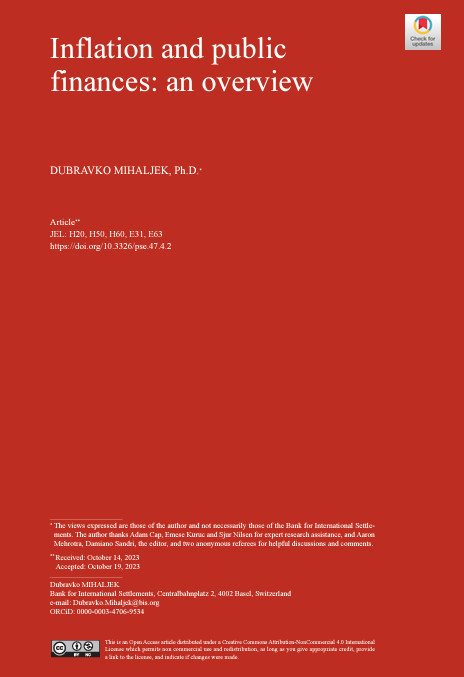Inflation and public finances: an overview
DOI:
https://doi.org/10.3326/pse.47.4.2Keywords:
inflation, tax revenue, government expenditure, fiscal balances, public debt, fiscal-monetary policy interactions, advanced economies, emerging market economies, Great InflationAbstract
This paper presents an analytical overview of the effects of inflation on government revenues, expenditure and fiscal positions. Evidence for a range of countries from the current inflation episode and that of the 1980s is compared and contrasted. The key finding is that high inflation initially boosts tax revenues and improves fiscal positions, but expenditure quickly catches up and offsets this improvement. The short-term boost is partly due to structural changes that have made modern tax systems more elastic with respect to inflation. The medium-turn deterioration reflects a shift toward spending items more responsive to inflation. The key risk is that the impression of abundant tax revenues will lead to spending programmes or tax cuts that damage public finances in the long term. As research on inflation and public finances has been dormant since the 1980s, this analysis fills a gap in our understanding of the fiscal consequences of inflation.

Downloads
Published
How to Cite
Issue
Section
License
Copyright (c) 2023 Dubravko Mihaljek

This work is licensed under a Creative Commons Attribution-NonCommercial 4.0 International License.








